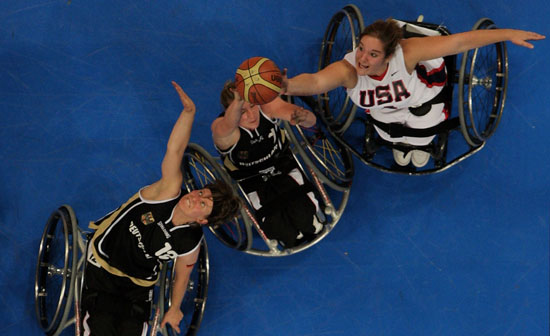Imagine a basketball team who has practiced, trained, and has landed a spot in postseason play. Throughout the season and playoffs they fought through fierce competition and found themselves in the championship game, only to lose. After the game, athlete A was disappointed, disheartened, and questioned herself and her talent. Athlete B was also disappointed but found herself reflecting on the season and how to improve to win the championship the next year. What’s the major difference here? Athlete A didn’t know how to fail, Athlete B did.
We all fail. Failing is part of sports, that can’t be changed. However, an athlete’s future success depends on how she perceives that failure. Athlete B demonstrated a growth mindset. Carol Dweck, Ph.D., author of Mindset, describes the growth mindset as someone who realizes her potential is boundless. Success comes through reflection, learning, and the continuous desire for improvement. Athletes with a growth mindset tend to celebrate the success of others, hear criticism as constructive feedback, use intentional effort to improve, and face obstacles or challenges as opportunities to strengthen their game.
It is challenging to maintain a growth mindset and often times many athletes don’t realize that they are operating from a fixed mindset. Athlete A is an example of an athlete with what Dr. Dweck would call a “fixed mindset.” This athlete views a loss as a blow to her self-esteem and questions her training if there is no win at the end. Athletes with a fixed mindset view their athletic success as predetermined. From this perspective challenges and criticism are seen as personal failure, effort is only exerted to gain praise or reward, and the success of others is threatening to one’s self-esteem. These athletes may possess the most talent, but this mindset gets in their own way for success.
Athletes are unique when it comes to developing their mindset. Many times athletes are judged on their abilities or physical traits. Athletes who are most successful, like Mia Hamm, Michael Jordan, Jackie Joyner Kersee and Wayne Gretzky, all demonstrate that regardless of physical gifts one must be relentless in the process of becoming the best. All of these athletes have dealt with disappointment, mistakes and setbacks. These are all challenging experiences but ones that cannot be avoided at any level. By using these tools one can learn how to feel empowered and motivated for self-improvement rather than frustrated and hopeless. You have the power to control your mindset.
|
Tips to Develop Your Mindset |
|

